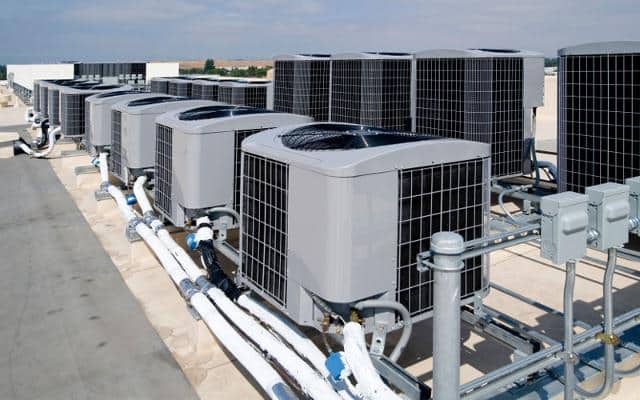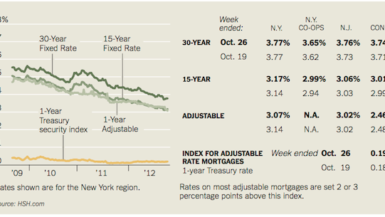- When you walk into a shopping mall, a restaurant, or an office building on a scorching summer day, the first thing that welcomes you is a refreshing blast of cool air. Have you ever wondered about the marvel behind maintaining such a comfortable environment? Well, that’s all thanks to commercial air conditioning systems – an essential component of modern businesses that often goes unnoticed but plays a crucial role in ensuring customer and employee satisfaction. In this article, we will delve into the world of commercial air conditioning, exploring its types, benefits, maintenance tips, energy-saving strategies, and more.
- Understanding Commercial Air Conditioning
- Definition and Purpose
- Commercial air conditioning refers to the cooling and dehumidification process that helps maintain optimal indoor temperatures in commercial settings, such as office buildings, retail stores, restaurants, hospitals, and hotels. The primary purpose of these systems is to create a comfortable environment for occupants, providing relief from extreme temperatures, and contributing to a pleasant customer experience.
- Importance in Commercial Settings
- The significance of commercial air conditioning cannot be overstated, especially in regions with extreme weather conditions. It not only enhances the comfort of customers and employees but also plays a vital role in preserving perishable goods in retail stores and restaurants, protecting sensitive equipment in data centers, and maintaining a conducive atmosphere in healthcare facilities for patients and medical staff.
- Types of Commercial Air Conditioning Systems
- There are various types of commercial air conditioning systems available in the market, each designed to cater to specific needs and spaces. Some of the common ones include:
- Packaged Air Conditioning Units
- Packaged air conditioning units are a popular choice for small to medium-sized commercial spaces. These systems house all components, including the compressor, condenser, and evaporator, in a single outdoor unit, making them space-efficient and easy to install.
- Split Air Conditioning Systems
- Split air conditioning systems comprise both indoor and outdoor units, with the indoor unit responsible for cooling the air and the outdoor unit dispersing the heat. These systems are ideal for larger commercial spaces and offer quieter operation due to the separation of the condenser.
- Rooftop Units
- As the name suggests, rooftop units are installed on the roof of a commercial building. They are commonly used in large-scale establishments and offer the advantage of freeing up indoor space. Rooftop units are also easier to access for maintenance.
- Variable Refrigerant Flow (VRF) Systems
- VRF systems are known for their energy efficiency and zoning capabilities. They allow different indoor units to operate at varying temperatures simultaneously, making them suitable for buildings with different cooling requirements in various zones.
- Factors to Consider When Choosing a Commercial Air Conditioning System
- Selecting the right commercial air conditioning system for your business requires careful consideration of several factors. Some essential points to keep in mind include:
- Cooling Capacity
- The cooling capacity of the system should align with the size of your commercial space. An undersized unit may struggle to cool the area adequately, while an oversized unit may lead to excessive energy consumption and increased utility costs.
- Energy Efficiency
- Energy-efficient systems not only help reduce operational expenses but also contribute to a greener and more sustainable environment. Look for units with high SEER (Seasonal Energy Efficiency Ratio) ratings for optimal efficiency.
- Size and Space Constraints
- Consider the available space for installation. Rooftop units may be a suitable option if indoor space is limited, while split systems can provide more flexibility in terms of unit placement.
- Installation and Maintenance Costs
- Factor in the upfront installation costs and ongoing maintenance expenses when evaluating different air conditioning systems. Opt for systems that offer a good balance of affordability and long-term reliability.
- Zoning and Control Options
- For establishments with varying cooling needs in different areas, zoning capabilities become crucial. These systems allow you to adjust temperatures separately for different zones, optimizing energy usage.
- Benefits of Installing a Commercial Air Conditioning System
- Installing a commercial air conditioning system goes beyond just providing a comfortable environment. Let’s explore some of the key benefits it offers to businesses:
- Improved Indoor Air Quality
- Air conditioning systems equipped with proper filtration help improve indoor air quality by removing dust, allergens, and pollutants, creating a healthier atmosphere for employees and customers alike.
- Enhanced Employee Productivity
- A comfortable working environment leads to happier and more productive employees. With regulated temperatures, employees can focus better on their tasks, leading to increased efficiency.
- Customer Comfort and Satisfaction
- For businesses in the service industry, customer satisfaction is paramount. A well-conditioned space ensures that customers stay longer and have a more enjoyable experience, leading to increased customer loyalty and repeat business.
- Equipment Longevity and Reliability
- Commercial air conditioning systems not only provide comfort to occupants but also help protect electronic equipment and machinery from overheating, extending their lifespan and reducing the risk of costly breakdowns.
- Top Tips for Maintaining a Commercial Air Conditioning System
- To ensure your commercial air conditioning system operates efficiently and lasts for years to come, follow these maintenance tips:
- Regular Filter Cleaning and Replacement
- Clogged and dirty filters obstruct airflow, reducing the system’s efficiency. Regularly clean and replace filters as recommended by the manufacturer.
- Scheduled Professional Inspections
- Schedule routine inspections by HVAC professionals to identify and address any potential issues before they escalate into major problems.
- Addressing Repairs Promptly
- If you notice any issues with your air conditioning system, such as strange noises or poor cooling, address them promptly to prevent further damage and higher repair costs.
- Optimizing Thermostat Settings
- Set your thermostat to an energy-saving temperature when the commercial space is not in use, and adjust it to a comfortable level during working hours.
- Sealing Air Leaks and Insulating Ductwork
- Leaky ducts can lead to significant energy wastage. Seal air leaks and ensure proper insulation to minimize cooling losses.
- Energy-Saving Strategies for Commercial Air Conditioning
- With rising energy costs and environmental concerns, implementing energy-saving strategies for your commercial air conditioning system can yield significant benefits:
- Smart Thermostat Integration
- Invest in smart thermostats that can learn and adapt to your business’s cooling patterns, optimizing energy usage by adjusting temperatures based on occupancy.
- Energy-Efficient HVAC Upgrades
- Consider upgrading to newer, more energy-efficient HVAC systems that meet the latest industry standards and provide better performance.
- Proper Building Insulation
- A well-insulated building retains cool air better, reducing the workload on your air conditioning system and cutting down energy consumption.
- Utilizing Natural Ventilation
- Strategically use natural ventilation when outdoor conditions are favorable, allowing fresh air to circulate and reduce the need for mechanical cooling.
- Implementing Time-of-Use Cooling
- Consider time-of-use cooling, which involves adjusting your cooling settings during peak and off-peak hours to take advantage of lower energy rates.
- Common Issues and Troubleshooting for Commercial Air Conditioning Systems
- Even with proper maintenance, commercial air conditioning systems may encounter issues. Here are some common problems and their troubleshooting tips:
- Uneven Cooling
- Uneven cooling may result from blocked vents or dirty filters. Ensure all vents are open and unobstructed, and clean or replace filters regularly.
- Airflow Problems
- Inadequate airflow could indicate issues with the blower motor or ductwork. Inspect the ducts for leaks and ensure the blower motor is functioning correctly.
- Refrigerant Leaks
- Refrigerant leaks can lead to reduced cooling performance. If you suspect a leak, contact a professional technician to locate and repair it.
- Thermostat Malfunctions
- A faulty thermostat may cause inaccurate temperature readings or system malfunctions. Calibrate or replace the thermostat as needed.
- Noisy Operation
- Unusual noises could be due to loose parts or debris in the system. Schedule a service appointment to diagnose and resolve the issue.
- The Future of Commercial Air Conditioning
- As technology continues to advance, the future of commercial air conditioning looks promising, with several exciting trends on the horizon:
- Advancements in Energy Efficiency
- Manufacturers are continually developing more energy-efficient systems, integrating cutting-edge technologies to reduce power consumption and environmental impact.
- Integration of Smart Technology
- The integration of artificial intelligence and smart technology will enable air conditioning systems to adapt and optimize cooling based on real-time data, further enhancing energy efficiency.
- Use of Environmentally Friendly Refrigerants
- With a growing emphasis on environmental sustainability, the HVAC industry is transitioning towards greener refrigerants that have lower global warming potential.
- Conclusion
- Commercial air conditioning is an indispensable part of modern businesses, providing comfort, efficiency, and improved indoor environments. Understanding the different types of systems, their benefits, and the importance of regular maintenance can help business owners make informed decisions for their cooling needs. By adopting energy-saving strategies and embracing the advancements of smart technology, the future of commercial air conditioning is set to be more environmentally friendly and cost-effective than ever before.





Leave a reply